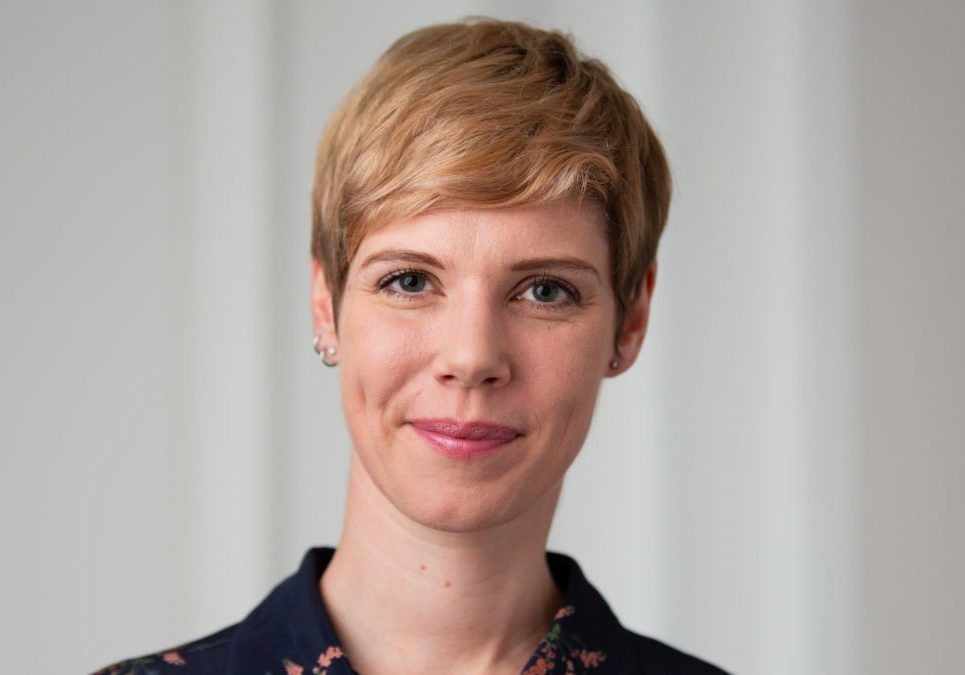Elisabeth Mayweg, Prof. Dr.
Elisabeth Mayweg ist Juniorprofessorin für Digitales Wissensmanagement in Studium und Lehre am Institut für Erziehungswissenschaften an der Humboldt-Universität zu Berlin. Die Professur ist eine Stiftungsprofessur (gestiftet durch die Commerzbankstiftung), die auch am Einstein Center Digitale Zukunft assoziiert ist. Zuvor war Elisabeth als Post-Doc am Zentrum für Hochschullehre an der Universität Münster und im Projekt SUPPORT für die Lehre an der Freien Universität Berlin tätig. Im Wintersemester 2017/18 vertrat sie die Professur für Pädagogische Psychologie an der Universität Hannover. Im Rahmen ihrer Postdoc-Zeit verbrachte sie als DFG-Forschungsstipendiatin einen Forschungsaufenthalt am Teachers’ College der Columbia University New York. Sie promovierte 2011 und habilitierte sich dann 2018 im Fach Psychologie bei Prof. Regina Jucks an der Universität Münster. In ihrer Forschung beschäftigt sich Elisabeth mit den Auswirkungen von verschiedenen Formen der Digitalisierung in Lehr-Lernkontexten an der Hochschule. Dabei interessiert sie sich für die besonderen Merkmale medialer synchroner und asynchroner Kommunikationsformen, wie Chat, Foren und Blogs, und deren Rolle beim Lernen und Kompetenzerwerb bei Studierenden.
Am HIIG ist Elisabeth im Forschungsprogramm Wissen & Gesellschaft assoziiert.
Eine vollständige Übersicht aller Publikationen und Vorträge finden Sie hier.
Foto: ECDF/PR/Felix Noak
Zeitschriftenartikel und Konferenzbeiträge
Engel, O., Zimmer, L. M., Lörz, M., & Mayweg-Paus, E. (2023). Digital studying in times of COVID-19: teacher- and student-related aspects of learning success in german higher education. International Journal of Educational Technology in Higher Education, 20(12). DOI: 10.1186/s41239-023-00382-w Weitere Informationen
Zimmermann M., Engel, O. & Mayweg-Paus, E. (2022). Pre-service teachers’ search strategies when sourcing educational information on the Internet. Frontiers in Education, 7. DOI: 10.3389/feduc.2022.976346 Weitere Informationen
Wilde, D., Engel, O., & Mayweg-Paus, E. (2022). Fit zum Studienabschluss! Ein digitales Lehrkonzept zur Vorbereitung der Abschlussarbeit. die Hochschullehr, 18, 256-267. DOI: 10.3278/HSL2218W Weitere Informationen
Macagno, F., Rapanta, C., Mayweg-Paus, E., & Garcia-Milà, M. (2022). Coding empathy in dialogue. Journal of Pragmatics, 192, 116-132. DOI: 10.1016/j.pragma.2022.02.011 Weitere Informationen
Engel, J., Mayweg, E., & Carnap, A. (2022). Postdigital bedingte Souveränität. Zum Wandel von Handlungsmächtigkeit aus erziehungswissenschaftlicher Perspektive. Medien + Erziehung, 66, 13-24. Weitere Informationen
Zimmermann, M., & Mayweg-Paus, E. (2021). The role of collaborative argumentation in future teachers’ selection of online information. Zeitschrift für Pädagogische Psychologie/German Journal of Educational Psychology, 35(2-3), 185-198. DOI: 10.1024/1010-0652/a000307 Weitere Informationen
Mayweg-Paus, E., Zimmermann, M., & Lefke, C. (2021). “You are not alone” – Opportunities and challenges for university students’ collaborative engagement when dealing with online information about COVID19. Frontiers in Psychology, 12. DOI: 10.3389/fpsyg.2021.728408 Weitere Informationen
Mayweg-Paus, E., Zimmermann, M., Le, N.-T., & Pinkwart, N. (2021). A review of technologies for collaborative online information seeking: On the contribution of collaborative argumentation. Education and Information Technologies, 26, 2053–2089. DOI: 10.1007/s10639-020-10345-7 Weitere Informationen
Hendriks, F., Mayweg-Paus, E., Felton, M., Iordanou, K., Jucks, R., & Zimmermann, M. (2020). Constraints and Affordances of Online Engagement With Scientific Information – A Literature Review. Frontiers in Psychology, 11(572744). DOI: 10.3389/fpsyg.2020.572744 Weitere Informationen
Mayweg-Paus, E., Jucks, R. (2017). Conflicting evidence or conflicting opinions? Two-sided discussions contribute to experts’ trustworthiness. Journal of Language and Social Psychology. Weitere Informationen
Mayweg-Paus, E., Thiebach, M., & Jucks, R. (2016). Let me critically question this! Insights from a training study on the role of questioning in argumentative discourse. International Journal of Educational Research, 79, 195-210. DOI: 10.1016/j.ijer.2016.05.017 Weitere Informationen
Mayweg-Paus, E., Macagno, F. & Kuhn, D. (2016). Developing argumentation strategies in electronic dialogs: Is modeling effective? Discourse Processes, 53(4), 280-297. DOI: 10.1080/0163853X.2015.1040323 Weitere Informationen
Thiebach, M., Mayweg-Paus, E., & Jucks, R. (2016). Better to agree or disagree? – The role of critical questioning and elaboration in argumentative discourse. Zeitschrift für Pädagogische Psychologie, 30(2-3), 133-149. DOI: 10.1024/1010-0652/a000174 Weitere Informationen
Hellmann, J.H., Paus, E. & Jucks. R. (2014). How can innovative teaching be taught? Insights from higher education. Psychology Learning and Teaching, 13, 43-51. DOI: 10.2304/plat.2014.13.1.43 Weitere Informationen
Deiglmayr, A., Paus, E., McCall, C., Mullins, D., Berthold, K., Wittwer, J., Krämer, N., & Rummel, N. (2013). Towards an integration of the learning perspective and the communication perspective in computer-supported instructional communication. Journal of Media Psychology, 25(4), 180-189. DOI: 10.1027/1864-1105/a000101 Weitere Informationen
Buchbeiträge und Kapitel
Mayweg-Paus, E., & Zimmermann, M. (2022). ritisches Denken beim Umgang mit Online-Informationen an der Hochschule. In H. A. Mieg, & F. Havemann, Critical Thinking. Wissenschaftsforschung Jahrbuch 2021. (pp. 107-138). Berlin: Wissenschaftlicher Verlag Berlin. Weitere Informationen
Mayweg-Paus E., & Zimmermann M. (2021). Educating Cultural Literacy with Open Educational Resources: Opportunities and Obstacles of Digital Teacher Collaborations. In Fiona Maine, & Maria Vrikki, Dialogue for Intercultural Understanding (pp. 149-163). Cham.: Springer. DOI: 10.1007/978-3-030-71778-0_11 Weitere Informationen
Andere Publikationen
Mayweg-Paus, E., Zimmermann, & M. & Ruwe, T. (2021). DIALLS Dataset of evaluations of Open Educational Resources – The Cultural Literacy Learning Programme resources [Data set]. DIALLS Horizon 2020 project: Dialogue and Argumentation for cultural Literacy Learning in Schools. Weitere Informationen

Position
Assoziierte Forscherin: Wissen & Gesellschaft
